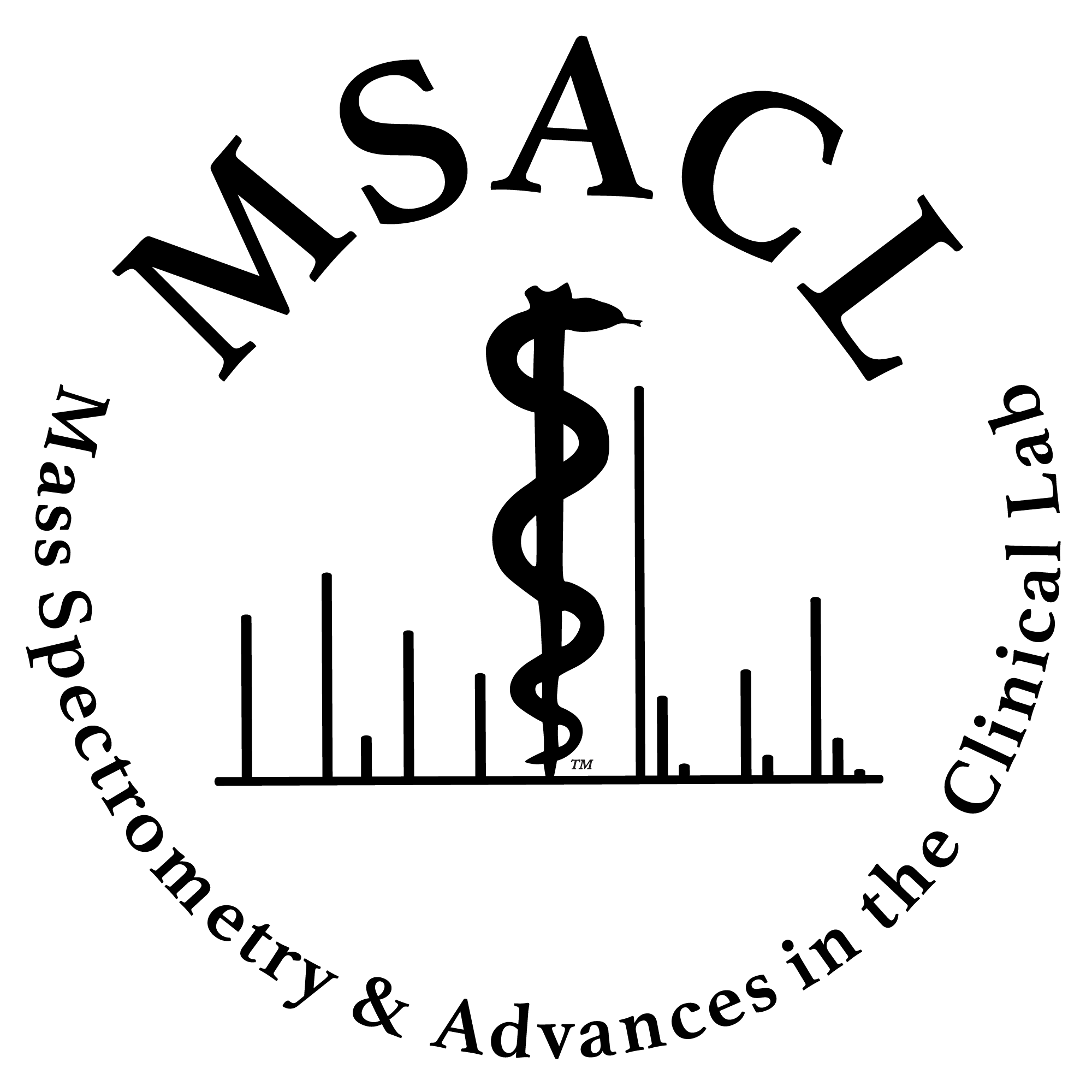MSACL 2022 Abstract
Self-Classified Topic Area(s): Proteomics > Cases in Clinical MS > Tox / TDM / Endocrine
|
|
Podium Presentation in De Anza 2 on Thursday at 14:00 (Chair: Ruben Y. Luo / Rashmi Kumar)
 Therapeutic Antibody Monitoring: the Case of Infliximab Therapeutic Antibody Monitoring: the Case of Infliximab
Maria Alice V. Willrich, Ph.D.; Paula M. Ladwig, M.S., MT(ASCP)
Department of Laboratory Medicine and Pathology, Mayo Clinic, Rochester, MN, USA

|
Maria Willrich, PhD (Presenter)
Mayo Clinic |
|
Presenter Bio: Dr. Maria Willrich received her Ph.D. degree from the School of Pharmaceutical Sciences of the University of Sao Paulo, Sao Paulo, Brazil, followed by a clinical chemistry post-doctoral fellowship at Mayo Clinic, in Rochester, MN. She holds the academic rank of Associate Professor of Laboratory Medicine and Pathology, Mayo Clinic College of Medicine, and is a co-director in the Protein and Antibody Immunology Laboratories and the Clinical Mass Spectrometry Laboratory, as well as associate program director of the post-doctoral clinical chemistry fellowship program in the Department of Laboratory Medicine and Pathology at Mayo Clinic. Peer-reviewed publications authored by Willrich and colleagues include 77 full length articles and book chapters. Her research projects span four areas related to immunology: laboratory testing for the monoclonal gammopathies, analysis of immunoglobulins free light chains in cerebrospinal fluid, the complement system and development of innovative methods of detection for monoclonal antibody therapeutics using mass spectrometry.
Dr. Willrich has given numerous presentations at national and international meetings, and has previously won two Young Investigator Awards from the Academy of Clinical Laboratory Physicians and Scientists, a Young Investigator and Clinical Laboratory Scientist awards from the Association of Medical Laboratory Immunologists, and an award for outstanding scientific achievements by a young investigator from the American Association for Clinical Chemistry, AACC. |
|
|
|
|
Abstract Big Idea Topic
Infliximab is a chimeric IgG1 kappa monoclonal antibody therapy FDA-approved in 1998, when it became the first tumor necrosis factor alpha (TNF) inhibitor available for use in clinical practice. Infliximab is prescribed mainly for rheumatoid arthritis and inflammatory bowel disease (IBD), amongst a few other indications. The rheumatology practice has had a large arsenal of disease modifying therapies, and it is relatively easy and noninvasive to monitor disease activity with X-rays, ultrasounds, and serum markers of inflammation such as C-reactive protein. Loss of response to a given therapy is common during flares, and patients transition from one drug to another routinely. For IBD, the field was very different in the early 2000s. There were only a couple of biologic therapies approved: infliximab and adalimumab, and the bulk of IBD clinical studies were performed with infliximab, an IV infusion. Loss of response (LOR) to therapy would likely mean abdominal surgeries for these patients and decreased quality of life. Disease activity and inflammation in the intestinal walls do not always correlate with serum inflammation markers, making the disease activity assessment less obvious and colonoscopies more frequent. Drug regimens with biologics were changing from the symptomatic/acute rescue to scheduled infusions every 8 weeks. Around 2010, only a few niche laboratories were performing testing for therapeutic monoclonal antibodies. Therapeutic drug monitoring of infliximab began to seem a plausible approach to monitor treatment, and study after study suggested it to be more cost-effective than empirical trial and error. Insurance companies would still question the need for the test at that time, and since there was practically no competition, the tests available by niche labs were very expensive. At the time, the TAXIT study (2015, PMID 25724455) showed that infliximab concentrations greater than 3-7 mcg/mL were associated with improved outcomes for patients. We also started to recognize the development of autoantibodies to infliximab (ATI). About 15% of patients tested for infliximab develop ATI, and ATIs were shown to be associated with LOR to therapy. In 2015, when we implemented the first mass spectrometry test for infliximab, there was little guidance on how to interpret results. Infliximab drug quantitation needs a companion assay for measurement of ATI, and interpretation of both assays needs expertise not only in mass spectrometry, but also in autoantibody testing. We decided for a reflex approach at the time, recommending testing at trough in the setting of LOR, and only reflexing to the ATI by immunoassay if the drug concentration was low, less than 5 mcg/mL. Then in 2017, the American Gastroenterology Association issued recommendations using a similar algorithm for LOR evaluation of adults with IBD. The practice continues to evolve and currently for infliximab there is evidence that not only reactive monitoring (LOR) is useful, but proactive monitoring of the drug at specific weeks after start of therapy (week 6, week 14) may predict outcomes. Proactive dose adjustments are an option even in the absence of LOR. Since test implementation we have performed over 90,000 infliximab tests and gained a lot of experience with this unique analyte. Different scenarios using real cases/ test results will be used as examples for interpretation of the different TDM strategies. This activity aims to provide historical context for therapeutic drug monitoring of monoclonal antibody therapies using infliximab as a case study and go beyond the development of the mass spectrometry test by itself. After this activity, participants should be able to 1. describe the main studies on therapeutic drug monitoring of monoclonal antibodies that led to implementation of these assays into clinical practice 2. apply this knowledge to the interpretation of test results. |
|
Financial Disclosure
| Description | Y/N | Source |
| Grants | yes | Sebia, Siemens, The Binding Site |
| Salary | yes | Mayo Clinic |
| Board Member | yes | Myeloma360, CAP Diagnostic Immunology and Flow Cytometry, AACC CDID |
| Stock | no | |
| Expenses | no | |
| IP Royalty | no | |
| Planning to mention or discuss specific products or technology of the company(ies) listed above: |
no |
|

